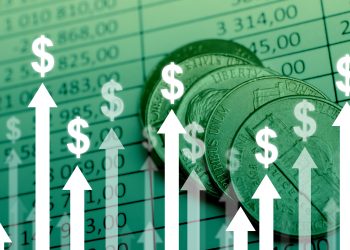RISMEDIA, Oct. 27, 2008-The stock market is down, and if you’re like most people, your level of investing confidence has dropped as well. Yes, only those with nerves of steel feel good about playing the market right now. And if you’re not one of those hearty souls, you’re at a bit of a loss as to what to do with your nest egg. Christine Karpinski has a suggestion: Instead of pouring your money into Wall Street, why not consider Ocean Boulevard or Mountainside Drive?
“A vacation home can be a remarkably good investment right now,” says Karpinski, director of Owner Community for HomeAway.com (an online vacation home rental marketplace) and author of How to Rent Vacation Properties by Owner, 2nd Edition: The Complete Guide to Buy, Manage, Furnish, Rent, Maintain and Advertise Your Vacation Rental Investment (Kinney Pollack Press, 2007, ISBN: 0-9748249-9-2, $26.00).
“Stock market woes have always pushed people to look for alternate investments, and real estate is a consistent stronghold,” she says. “Yes, home values are down right now but they have always rebounded. I wouldn’t recommend buying a second home with the expectation of flipping it for a quick buck, but if you hang onto it for a while-and better still, turn it into a vacation rental property-you’ll make a nice profit.”
Not incidentally, in many areas of the country, rental demand exceeds supply. The sunshine state (Florida) is a prime example. Buy a vacation home in a market like Cape Coral, Daytona, Destin, Fort Lauderdale, Indian Rocks Beach, Kissimmee, Madeira Beach, Orlando, Panama City Beach, Sanibel Island, West Palm Beach, or Windsor Hills, says Karpinski, and you can’t lose. Even if you prefer to buy elsewhere, if you adhere to proven marketing tactics, you should be able to attract enough guests to make the purchase worth your while.
So what makes buying a vacation home so attractive right now? Karpinski explains:
There are plenty of great deals to be had. Thanks to the aftermath of the real estate bubble, home prices are down right now across the board. That means in many vacation markets, you can pick up a beach condo or a mountain cabin at a decent price. And that means that if you’ve been kicking yourself for not buying a vacation home back before prices escalated beyond all reason, you’ve got a reprieve-Karpinski says that in some markets homes are back to 2000 prices.
“Housing bubble or no housing bubble, you’re not going to get bargain basement prices on, say, a cottage right on the ocean-but if you’re willing to buy a few rows back, you’ll likely find that prices have fallen substantially,” notes Karpinski. “Because houses aren’t flying off the shelf, there’s less pressure on you to make a quick decision. You can afford to take your time, do your research, and refine your plan.”
Interest rates are attractive right now. Recently, the Federal Reserve cut interest rates by half a percentage point in an effort to shore up America’s faltering economy. And rates have been reasonably low for awhile, following earlier rate cuts toward the beginning of the year. That’s good news for anyone (anyone with good credit, that is) who’s in the market for a mortgage.
“Add the lower interest rates to the lower housing prices, and it’s clear that now is the time to buy,” says Karpinski. “Of course, for the sake of our nation’s economy, we want the real estate market to pick up, but from an individual buyer’s perspective, the combination of lots of houses for sale, low prices, and falling interest rates is hard to beat.”
If you’re worried about investing in a sluggish real estate market, relax. Recent reports indicate housing is on the rebound. Last week the National Association of Realtors® reported that, “The Pending Home Sales Index (PHSI), a forward-looking indicator based on contracts signed in August, jumped 7.4%…and is 8.8 percent higher than August 2007.”
Other encouraging points made in the NAR article:
– Pending home sales are up strongly in vacation home-heavy areas like Arizona and Florida.
– The PHSI jumped 18.4% in August. It’s now 37.8% above what it was a year ago.
– Home prices are projected to increase 2 to 3% next year.
According to Lawrence Yun, NAR chief economist: “Home buyers in July were hampered by overly stringent lending criteria in the months before the government takeover of Fannie and Freddie,” he said. “August shows some unleashing of pent-up demand before the credit crisis accelerated in September.”
“If you’re anxious about your ROI, these statistics should put your mind at ease,” notes Karpinski. “But always remember to think of real estate as a long-term investment. It doesn’t really matter whether the market starts picking up steam right away. Your home will appreciate slowly over the years, and that’s all that really matters.”
You can use your rental income to offset your mortgage. (And then some!) Karpinski is a huge proponent of renting by owner (rather than using a property management company). Rent it out only seventeen weeks out of the year and your new vacation home could pay for itself. When your monthly mortgage payment is less than or equal to one peak week rental, twelve weeks of rental will cover your mortgage payments for the entire year. Other costs, including bills for your phone, power, cable, and association dues, may be paid out of your earnings from approximately five off-week rentals.
“Most owners tell me that their average weekly rate is around $1,500 to $1,600 and that their property is rented out twenty weeks or more per year,” says Karpinski. “Do the math and you’ll see that that comes out to around $30,000 or more in rental revenue each year. And here’s something interesting: While most people admit that the cost savings is the primary reason they rent by owner, they often add that the sense of control it gives them is equally important. They feel they can take better care of their property than anyone else and like to know who is renting their homes.”
It’s never been easier to market rental properties. Websites like HomeAway.com have made it easy and inexpensive for homeowners to list their properties. Plus, says Karpinski, as more and more people realize the benefits of staying in vacation homes rather than hotels, the pool of potential guests grows by leaps and bounds.
“There are lots of markets for renting vacation homes besides the usual leisure traveler,” notes Karpinski. “Business travelers are one example. If you’re a homeowner, you can approach local businesses and invite them to have clients and associates stay at your vacation home instead of at a hotel. Just make sure your house is properly equipped and you might find yourself with a self-replenishing stream of guests.”
If you’re rushing out the door to head to the bank right now, Karpinski doesn’t blame you. (She owns several vacation homes herself and knows what a fantastic investment they can be.) But she does want you to temper your enthusiasm with a word or two of caution.
“It’s not as easy to get a mortgage as it once was,” she warns. “But if you have strong credit, you can find a lender who’ll work with you. Also, don’t rush into a decision. You may be thinking, ‘Well, if I do this before the end of the year, I can get a nice tax write-off.’ That’s true. But it’s more important to take your time, make sure the property is right for you, and make sure the rent-by-owner lifestyle is right for you. It’s not for everyone-but if you know what you’re getting into, you may well decide it’s the best financial decision you could make.”
5 Reasons Why the Vacation Home Rental Market Is Holding Strong…Even in our Weak Economy
1. It’s easy for consumers to find information on vacation homes. By visiting respectable websites travelers can quickly find the vacation home that’s right for them. HomeAway’s network of vacation rentals includes over 300,000 properties all over the world, making it possible for almost anyone to find one within a two- to three-hour driving distance from their home.
2. Vacation homes tend to be less expensive than hotel rooms. This is especially true if you’re traveling with extended family or a group of friends. HomeAway recently contrasted a three-bedroom vacation rental private condo in Orlando with a popular three-star hotel and found that the condo was cheaper by more than $1,700! “That’s a big difference, and in a tenuous economy it seems even bigger,” notes Karpinski.
3. When airfare gets expensive, people start taking road trips instead. Even with gas prices relatively high, it’s still far cheaper to drive a couple hundred miles to your mountain cabin than to fly to some lavish vacation destination. “Even with the bad economy, people need to take vacations,” says Karpinski. “In fact, psychologically, they may need to get away more than ever. A fairly inexpensive stay in a nearby vacation home is the perfect solution.”
4. The weak dollar makes U.S. tourist destinations attractive to European travelers, whose currency is still strong. “On my recent trip to Hawaii, I noticed a lot of German tourists,” notes Karpinski. “And when I speak to many of the vacation homeowners I work with, they confirm that they’ve encountered a surprisingly high number of European travelers lately.”
5. Business travelers still need a place to stay. When corporations must meet with business associates-who increasingly hail from overseas-they need good lodging solutions. Enter the vacation home. “More and more executives are putting their guests up in vacation homes instead of cramped, impersonal hotel rooms,” notes Karpinski. “It’s a far more comfortable option; plus many companies work out deals with homeowners whereby they can get ‘volume discounts.’ It’s a win/win for all parties involved.”
Christine Karpinski is the author of “How to Rent Vacation Properties by Owner, 2nd Edition: The Complete Guide to Buy, Manage, Furnish, Rent, Maintain and Advertise Your Vacation Rental Investment” (Kinney Pollack Press, 2007, ISBN: 0-9748249-9-2, $26.00) and “Profit from Your Vacation Home Dream: The Complete Guide to a Savvy Financial and Emotional Investment” (Kaplan, 2005, ISBN: 1-4195069-1-9, $19.95).
For more information, visit www.HomeAway.com.










